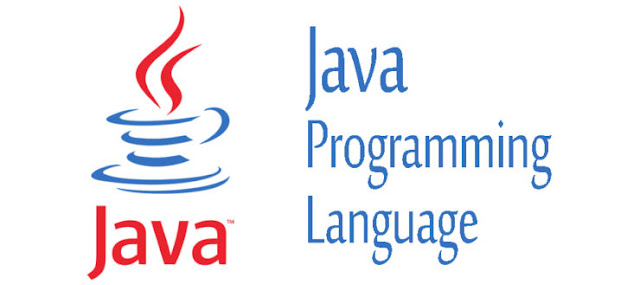Conditional operators and control statements
In this section, you learn about the various statements and operators you can use to tell your Java programs how you want them to act based on different input.Relational and conditional operators
The Java language gives you operators and control statements that you can use to make decisions in your code. Most often, a decision in code starts with a Boolean expression (that is, one that evaluates to either true or false). Such expressions use relational operators, which compare one operand or expression to another, and conditional operators.Table 3 lists the relational and conditional operators of the Java language.
Table 3. Relational and conditional operators
| Operator | Usage | Returns true if... |
|---|---|---|
> | a > b | a
is greater than b |
>= | a >= b | a
is greater than or equal to b |
< | a < b | a
is less than b |
<= | a <= b | a
is less than or equal to b |
== | a == b | a is
equal to b |
!= | a != b | a is
not equal to b |
&& | a &&
b | a and b are both true,
conditionally evaluates b (if a is false,
b is not evaluated) |
|| | a || b | a or
b is true, conditionally evaluates b (if
a is true, b is not evaluated) |
! | !a | a is false
|
& | a & b | a
and b are both true, always evaluates
b |
| | a | b | a or
b is true, always evaluates b |
^ | a ^ b | a and
b are different |
The if statement
Now that you have a bunch of operators, it's time to use them. This code shows what
happens when you add some logic to the Person object's
getHeight() accessor:
1
2
3
4
5
6
7
| public int getHeight() { int ret = height; // If locale of the machine this code is running on is U.S., if (Locale.getDefault().equals(Locale.US)) ret /= 2.54;// convert from cm to inches return ret;} |
height (in
centimeters) to inches. This (somewhat contrived) example illustrates the use of the
if statement, which evaluates a Boolean expression inside
parentheses. If that expression evaluates to true, it executes the next statement. In this case, you only need to execute one statement if the
Locale of
the machine the code is running on is Locale.US. If you need to execute
more than one statement, you can use curly braces to form a compound
statement. A compound statement groups many statements into one —
and compound statements can also contain other compound statements. Variable scope
Every variable in a Java application has scope, or localized namespace, where you can access it by name within the code. Outside that space the variable is out of scope, and you get a compile error if you try to access it. Scope levels in the Java language are defined by where a variable is declared, as shown in Listing 7.Listing 7. Variable scope
1
2
3
4
5
6
7
8
9
10
11
12
13
14
15
16
| public class SomeClass { private String someClassVariable; public void someMethod(String someParameter) { String someLocalVariable = "Hello"; if (true) { String someOtherLocalVariable = "Howdy"; } someClassVariable = someParameter; // legal someLocalVariable = someClassVariable; // also legal someOtherLocalVariable = someLocalVariable;// Variable out of scope! } public void someOtherMethod() { someLocalVariable = "Hello there";// That variable is out of scope! }} |
SomeClass, someClassVariable is accessible by all
instance (that is, nonstatic) methods. Within someMethod,
someParameter is visible, but outside of that method it is not, and
the same is true for someLocalVariable. Within the if
block, someOtherLocalVariable is declared, and outside of that
if block it is out of scope. For this reason, we say that Java has
block scope, because blocks (delimited by { and
}) define the scope boundaries. Scope has many rules, but Listing 7 shows the most common ones. Take a few minutes to familiarize yourself with them.
The else statement
Sometimes in a program's control flow, you want to take action only if a particular
expression fails to evaluate to true. That's when else comes in handy:
1
2
3
4
5
6
7
8
9
10
| public int getHeight() { int ret; if (gender.equals("MALE")) ret = height + 2; else { ret = height; Logger.getLogger("Person").info("Being honest about height..."); } return ret;} |
else statement works the same way as if, in that it
executes only the next statement it runs across. In this case, two statements are
grouped into a compound statement (notice the curly braces), which the program then
executes. You can also use
else to perform an additional if check:
1
2
3
4
5
6
7
8
9
| if (conditional) { // Block 1} else if (conditional2) { // Block 2} else if (conditional3) { // Block 3} else { // Block 4} // End |
conditional evaluates to true, then Block
1 is executed and the program jumps to the next statement after the
final curly brace (which is indicated by // End). If
conditional does not evaluate to true, then
conditional2 is evaluated. If
conditional2 is true, then Block
2 is executed, and the program jumps to the next statement after the
final curly brace. If conditional2 is not true, then the
program moves on to conditional3, and so on. Only if all three
conditionals fail is Block 4 executed. The ternary operator
The Java language provides a handy operator for doing simpleif /
else statement checks. Its syntax is:
1
| (conditional) ? statementIfTrue : statementIfFalse; |
conditional evaluates to true, then
statementIfTrue is executed; otherwise,
statementIfFalse is executed. Compound statements are
not allowed for either statement. The ternary operator comes in handy when you know that you need to execute one statement as the result of the conditional evaluating to true, and another if it does not. Ternary operators are most often used to initialize a variable (such as a return value), like so:
1
2
3
| public int getHeight() { return (gender.equals("MALE")) ? (height + 2) : height;} |










0 comments:
Post a Comment